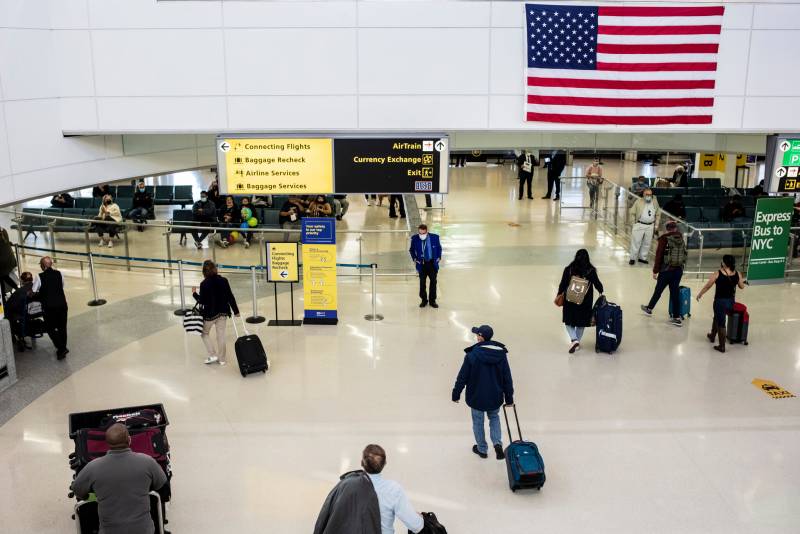Travelers to the U.S. no longer have to show proof of a negative COVID-19 test or documentation of recovery from the virus, according to the U.S. Centers for Disease Control.
The order was lifted Sunday, according to a Friday news release from the federal health agency. It had been in place since January of last year. Foreign travelers must still show proof of COVID-19 vaccination.
“The COVID-19 pandemic has now shifted to a new phase,” officials said in the release, citing “highly effective” vaccines and “high rates of vaccine- and infection-induced immunity” among Americans, among other factors.
“Each of these measures has contributed to lower risk of severe disease and death across the United States,” officials said, adding that the agency still recommends travelers coming to the U.S. get tested within three days of departure and do not travel if they are sick.
Nearly 78% of the U.S. population had been vaccinated as of Sunday, according to CDC data. Additionally, the CDC estimates, based on antibody levels from commercial labs, that nearly 58% of Americans have been infected at least once.
Omicron variants, however, are known for their ability to evade immunity–especially BA.4 and BA.5, two relatively new subvariants thought to be the most transmissible so far, with documented ability to evade immunity both from vaccination and prior infections.
Levels of BA.4 and BA.5 are ticking up in the U.S., comprising 5% and 8% of infections as of two weeks ago, according to the CDC. New data will be released Tuesday.
While it’s unknown if the variants will dominate the U.S. as they did earlier this spring in South Africa, they’re already proving themselves as competitors against the currently dominant B.2.12.1, which comprised 62% of infections two weeks ago, and BA.1, which comprised 25%.
Additionally, while vaccines are known to reduce the risk of severe illness and death, they don’t prevent the spread of COVID–at least not fully. Breakthrough infections still occur, and “research is ongoing to understand the extent to which being vaccinated stops you from becoming infected and passing the virus on to others,” according to the World Health Organization.
Those who are fully vaccinated should continue to practice prevention measures like masking and social distancing to protect others, it adds.




